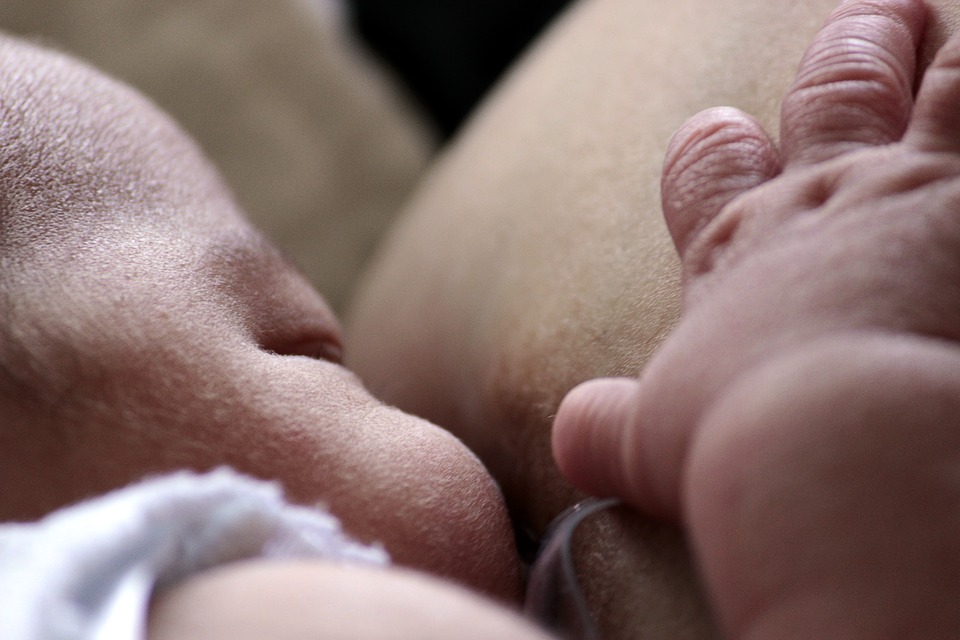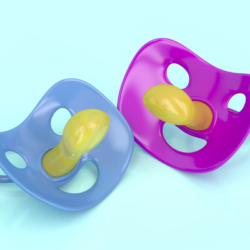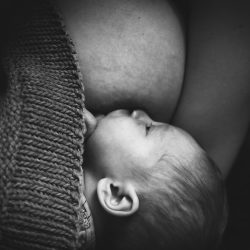Breastfeeding is a gift that every mom should be able to give her baby. A natural and generous act that will allow the baby to be closer to his mother, and thus discover the life that is offered to him in the best possible conditions, with gentleness and serenity. Unfortunately, some women cannot breastfeed due to physiological causes: malformations of the mammary glands, hormonal disorders, surgical procedures, or even a restrictive professional life. For all the others, the first days are crucial . It is important not to give up, to act with determination.
Trust yourself and trust nature!
Indeed, for some, breastfeeding is totally instinctive. For others, it may be more complicated; breast pain, poor position of the baby… The first few days are often trying, tiring and painful, pushing many women to choose the easy way and fall back on formula milk. One of the reasons which can push to give up breastfeeding is in particular the cracked nipple… this phenomenon often occurs when the baby takes a bad position to suckle, but also during excessive friction on the clothes which can greatly irritate them. Fortunately, there are many nipple care products that can provide relief. Opt for nipple shields or nursing pads is also recommended.
For successful breastfeeding, it is important to want it, to feel capable of it and finally, to be supported and guided by professionals attentive to your expectations and your needs.
For my part, I choose to write this article to present to you the many benefits that breastfeeding can have on your baby, but also on you, and succeed in convincing all future mothers to make this choice.
The benefits of breastfeeding on babies
Transmission of antibodies:
Whenever the mother is exposed to viruses or bacteria, her body produces antibodies that are found in breast milk and then transmitted to the baby through breastfeeding. So your baby is more resistant to external aggressions .
It is during the first days of its existence that your little one receives its highest concentration of antibodies through colostrum ; a yellowish liquid very rich in proteins, a precursor of breast milk, essential for the proper development of the immune system.
Breastfeeding your baby therefore reduces the risk of contracting childhood diseases and allergies such as: ear infections, respiratory tract infections (bronchitis, bronchiolitis), colds and infections, diarrhea, sudden infant death syndrome, allergies, celiac disease, intestinal inflammation, diabetes .
The transmission of nutrients:
Nature is well done, breast milk contains all the nutrients necessary for the proper development of the child during the first months of his life, in proportions adapted according to his evolution:
- The first 3 days: the mother secretes colostrum, providing the baby with a huge amount of immunoglobulins that he cannot yet manufacture himself, lactic ferments and enzymes.
- The following two weeks: the mother secretes a so-called “transitional” milk, low in lactose, because the infant’s activity is still low
- The following weeks: the milk becomes richer in fatty acids to meet all its growing needs.
Unlike formula milk, the calorie content and composition of breast milk varies during each feeding , but also throughout your breastfeeding period, in order to meet your baby’s needs.
As you will have understood, no industrial milk can replace mother’s milk!
Better assimilation:
Proteins from breast milk are assimilated perfectly by the baby, avoiding excessive strain on the liver. In addition, they are also better eliminated by the kidneys, which are not fully mature at birth.
Better assimilation of nutrients has the effect of avoiding painful colic, stomach pain or constipation.
A comfort and a unique mother-child bond:
Breastfeeding is a privileged moment, a skin-to-skin contact where the child recognizes the smell of his mother and feels safe, in a little pig of warmth. Because a breastfeeding mother spends an average of 14 hours with her baby at the breast per day during the first months of breastfeeding. Moments of exchange throughout the day that create a unique bond between mother and baby .
Why cow’s milk cannot replace breast milk?
When a baby is fed cow’s milk, he digests poorly, regurgitates, has diarrhea. ..
- Cow’s milk is only suitable for calves. It is a caseinous milk, while the woman’s milk is an albuminous milk. Cow’s milk contains 5 times more casein (protein found in cow’s milk) than breast milk. The calf easily digests casein, as it has a system of stomach pouches which effectively grinds the curds. The human being has only a stomach which cannot digest it.
- The calf doubles its body weight in two months, while the child at five to six months. Its needs are therefore three times lower in proteins and minerals.
- The brain of the child grows twice as fast as that of the calf, an intake twice as high in galactose and essential fatty acids is important.
- The excess of amino acids (protein) contained in cow’s milk leads to too great a source of calories for the baby causing significant work of the liver to manufacture urea and release phosphates and sulphates that the kidney must then eliminate.
The benefits of breastfeeding on the baby are often highlighted, but what about the benefits that breastfeeding can have on the mother?
The benefits of breastfeeding for mom
Breastfeeding allows the uterus to return to its original size and to find a flat stomach more quickly. The return of menstruation is also later, it can go up to 6 months after childbirth unlike about 3 months for women who do not breastfeed. Indeed, prolactin, the hormone stimulated by breastfeeding, delays ovulation.
Breastfeeding also makes it possible to get rid of the pounds gained during pregnancy more quickly, because breastfeeding requires a lot of energy from the body, forcing it to draw on its fat reserves. In particular, it reduces the risk of postpartum depression as well as the risk of breast, uterine and ovarian cancer.
Breastfeeding your child halves the risk of stroke and gives you the opportunity to really take time for yourself. Sit down, stretch your legs, relax and enjoy this exceptional moment between mother and baby.





